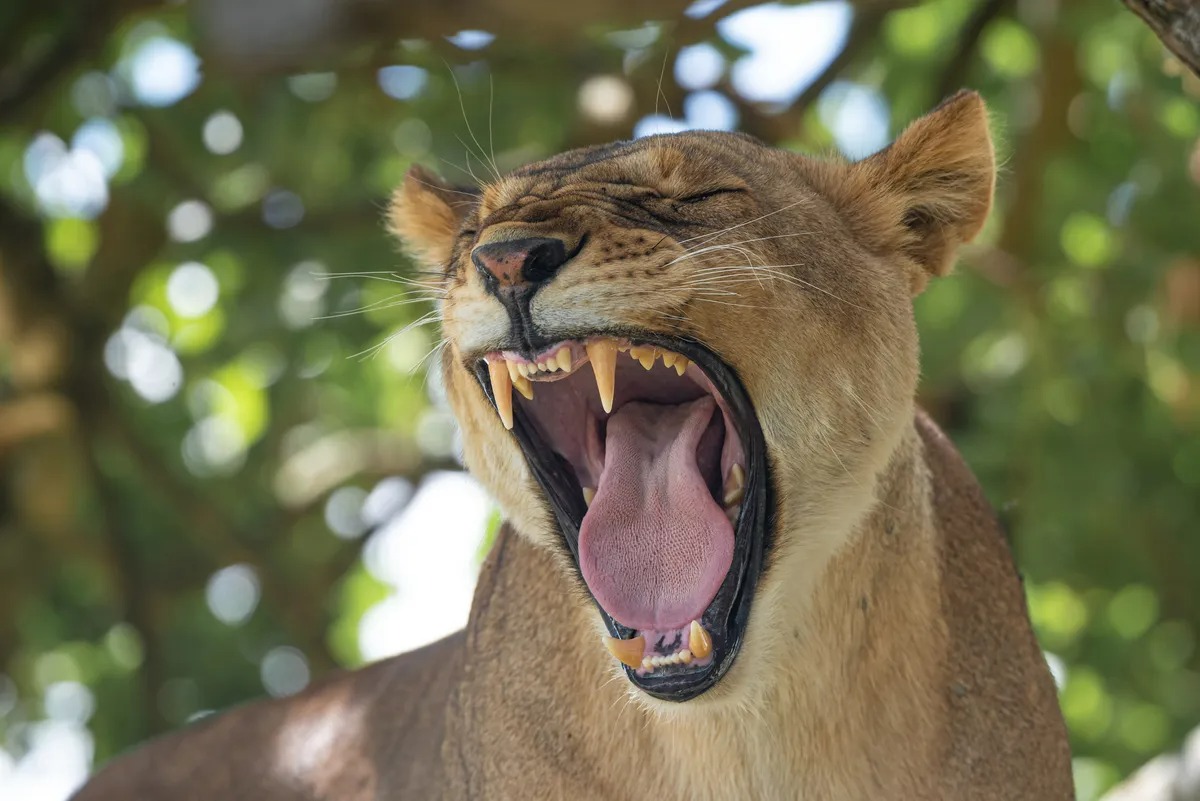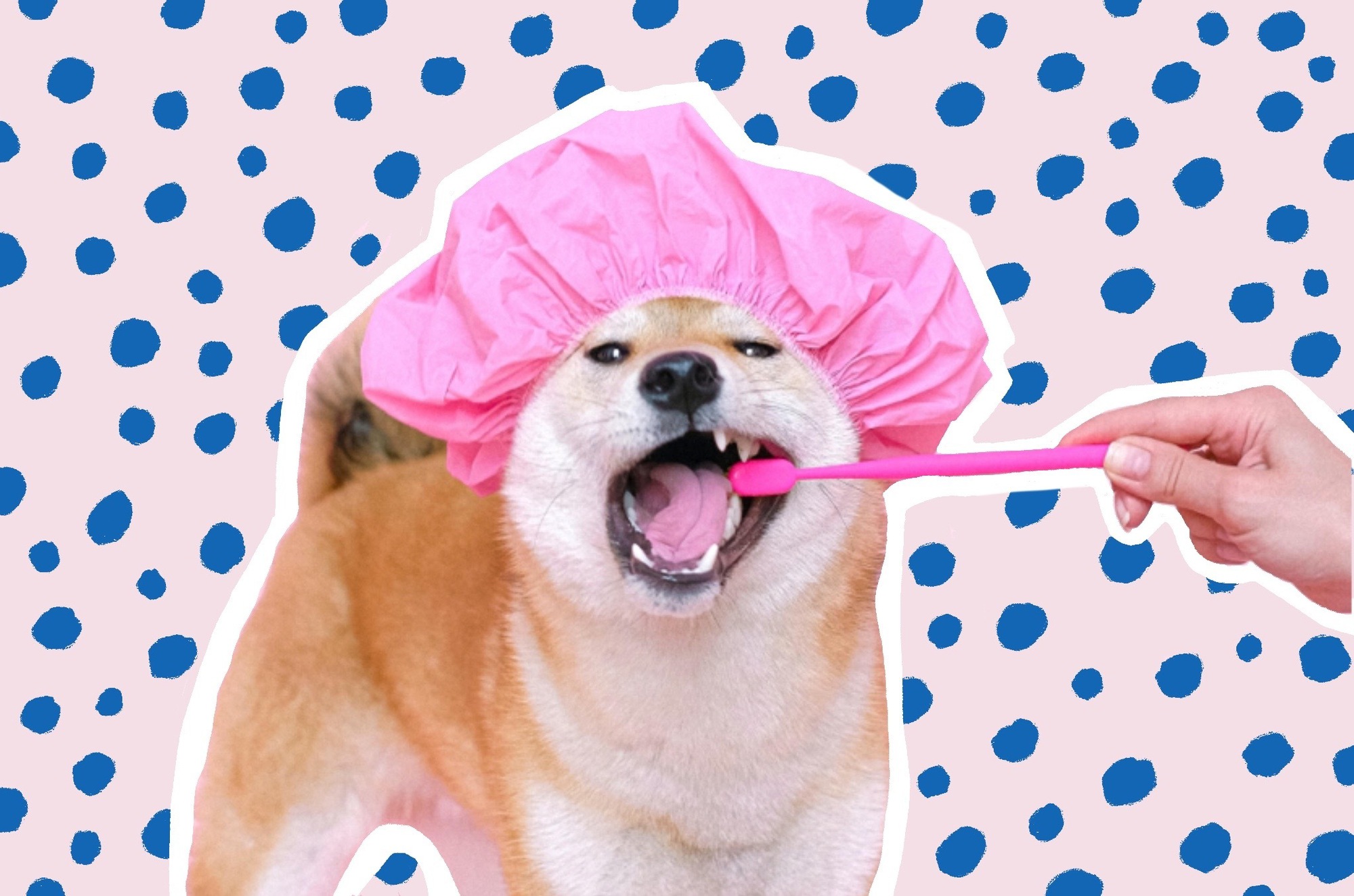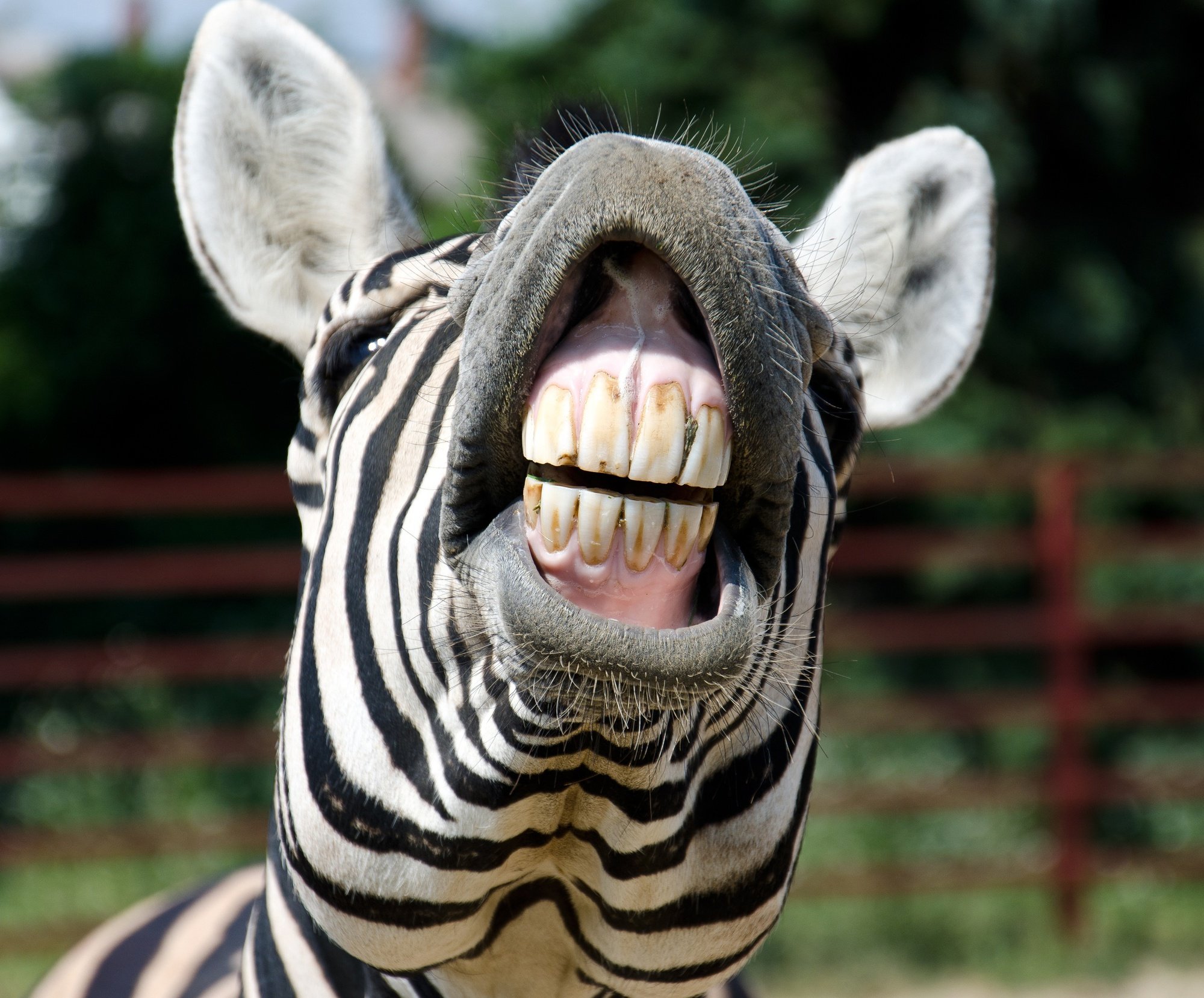For humans, brushing teeth remains an indispensable habit, but understanding and adjusting our diet is equally important in protecting our smiles. And for animals, maintaining a natural habitat and diet remains key to their health without the need for toothbrushes.
Brushing teeth daily may be an indispensable part of human life, helping to maintain oral health and prevent related diseases. However, this is unnecessary for most animals. The image of a bonobos with a perfect smile has led many to wonder: Why don't animals need to brush their teeth, while we can't do without it? To answer this question, dentist Peter Kertesz, who has years of experience caring for the teeth of animals at ZSL London Zoo and many other facilities around the world , shared some interesting stories from his work.

Dental care for wild animals
Peter Kertesz is one of the few dentists in the world specializing in dental care for animals, from cats, elephants, and tigers to dolphins and sloths. His journey to becoming an "animal dentist" began by chance when he received a call requesting dental treatment for a small cat. Since then, this work has gradually become his passion. He shared, "If I continue doing this, I want to be better equipped than anyone else in the world."
Along with dental nurse Monika Mazurkiewicz, Kertesz has provided dental care to hundreds of animals. His patient list includes rare species such as gorillas, dolphins, walruses, pygmy hippos, and rhinos. This work requires not only professional skills but also a deep understanding of the habitat and natural habits of each species.

Some animals are known to have the ability to 'clean' their own teeth, but their techniques are largely different from how we clean our teeth with a toothbrush. Additionally, many animals have shorter lifespans than humans. Therefore, dental problems often don't develop or become too serious.
Why don't animals need to brush their teeth?
Kertesz explains that most animals don't suffer from cavities like humans due to their natural diets. In nature, animals don't consume refined carbohydrates—the main cause of cavities in humans. Instead, they eat self-cleaning foods, such as grass, raw meat, or natural fruits, which keep their teeth healthy.
However, in captivity, the situation can be more complicated. Animals in zoos often have longer lifespans due to better care, but they are also more susceptible to dental problems related to aging and a diet that isn't entirely natural. A prime example is the rock hyrax – a small animal that lives in desert environments. They are fed fruit at zoos, a high-sugar food that is unnatural for them, leading to severe tooth decay, infections, and damage to internal organs.

Unlike humans, animals living in the wild do not consume cooked food. Whether they are herbivores, carnivores, or both, they only eat raw food and drink nothing but water. For this reason, their teeth are not at risk of erosion from foods high in refined sugar or flavored drinks.
According to Kertesz, dental injuries are the most common problem in wildlife, rather than cavities. Animals that frequently bite, chew on hard objects, or use their teeth in fights are at risk of broken, chipped, or damaged teeth or oral structures. Large animals, in particular, such as tigers, elephants, and gorillas, often require complex dental interventions to repair these injuries.
The role of natural diets
A crucial factor in maintaining oral health in animals is a diet close to nature. Kertesz emphasizes: “The mouth is the gateway to the body, and unhealthy teeth can have significant consequences for vital organs.” Understanding the environment and diet appropriate for each animal species is essential in maintaining their oral health.
In nature, animals regularly wear down their teeth by chewing on rough foods like bones, bark, or plant fibers, which helps clean their teeth naturally. Conversely, in captivity, if their diet is not carefully managed, animals are prone to serious dental problems.

Herbivorous animals, which rely on raw, fiber-rich foods (such as cows and buffalo), need to chew their food for a very long time to digest it properly. In the process of chewing these fiber-rich foods, they also inadvertently clean their teeth.
Through his work, Kertesz emphasizes the importance of diet for oral health. While humans often rely on brushing and other dental hygiene practices, animals demonstrate that a healthy diet can significantly reduce the risk of cavities and other dental problems.
Even though animals don't need daily brushing, they still require special medical care to address dental issues when they arise. And for Kertesz, performing surgeries on animals is not only a professional challenge but also an opportunity to explore and learn more about the diversity of the natural world.
Source: https://giadinh.suckhoedoisong.vn/dong-vat-co-can-danh-rang-khong-172241231071451167.htm






































































































Comment (0)